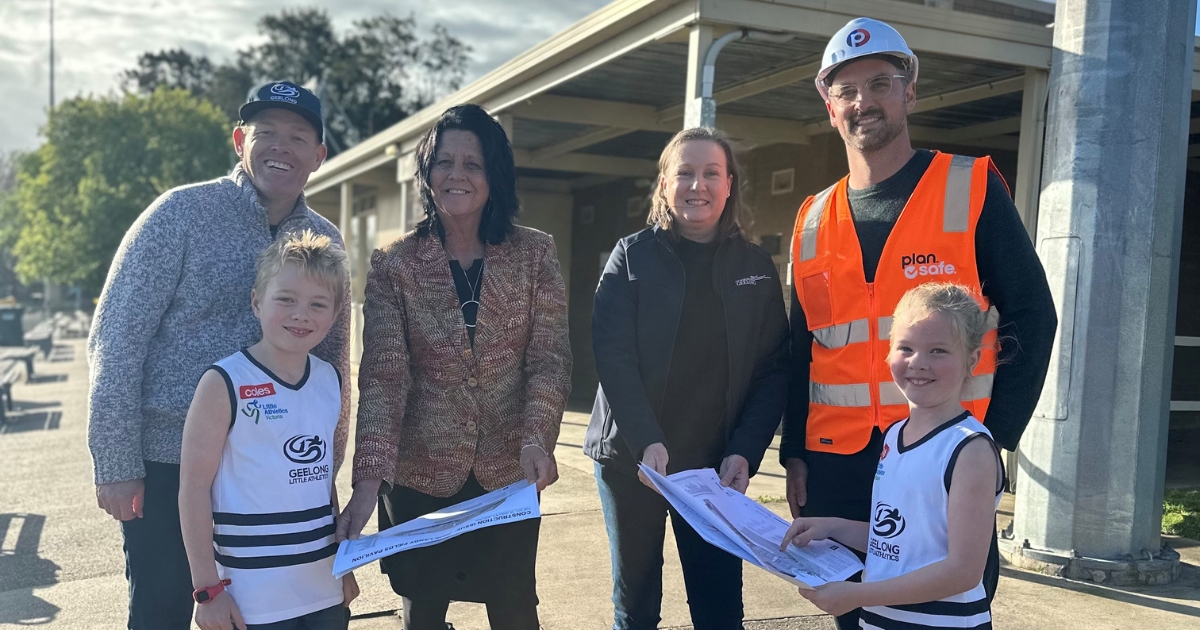Letters To The Editor – August 23, 2018
Don’t ignore your constituents
Dear Editor,
Our Local Member will no longer respond to letters from members of the Aireys Inlet Rural Australians for Refugees, as she advised in recent correspondence.
Never mind that the appalling treatment of asylum seekers by her government requires good people to keep questioning, objecting to and seeking answers as to why it is not possible to put in place a more humane response, which includes fulfilling our national and international obligations.
Well may Sarah Henderson talk about the grave risks facing parliamentarians in marginal seats.
Might I say that ignoring her constituents will not help her in Corangamite. People have long memories when it comes to this sort of contemptuous action.
Dr Gary Johnson
Member, Aireys Inlet Rural Australians for Refugees
Rudd policy to blame
Dear Editor,
Last week, Rosemary Faris wrote she cannot conceive how Australia can incarcerate people, “most of whom are genuine refugees” (“Protest leads to hope”, Letters, August 16).
Of course, she wants our offshore and onshore detention centres dismantled and to allow virtually anyone who gets on a boat automatic assess to Australia and citizenship.
In 2007, the boats had stopped, detention centres were nearly empty and we were taking all our refugees in an orderly manner and prioritised refugees from UN camps.
But then Kevin Rudd came to power and under heavy pressure from outraged refugee activists, dismantled border protection and implemented a “humane and compassionate” policy.
What followed was total chaos, an avalanche of boats, 50,000 boat people.
People smugglers made a fortune but 1,200 people had drowned or were smashed to death on the rocks of Christmas Island.
Rudd then restored border protection and the boats stopped but detention centres were overflowing.
Ask yourself, who are the most deserving refugees Australia should take?
Boat people who have passports, fly into Indonesia, stay at hotels and pay big bucks to people smugglers, or refugees in UN camps who have no money, possessions or hope?
Can you imagine how they feel as they wait for their turn and watch while middle class opportunists bypass the system with money.
Why do these activists have no compassion for real refugees rotting in UN camps and express no remorse or responsibility for the boat people who died?
But they want to do it all over again!
Peter Rees
Bell Park
Australian steel versus the elements and imported explosives
Dear Editor,
Over recent weeks the forces of nature have been hurling gale-force hurricanes at a certain superfluous structure in Anglesea, but all to no avail.
Its staying power must be due to it being constructed of tough Australian steel. So cheap imported explosives are not likely to have much effect on it.
Hopefully the experts who are contemplating ways to topple the aggressively resistant edifice (“Alcoa consider next attempt to demolish power station”, Surf Coast Times, August 16) will consider sourcing some good old Aussie dynamite to get the job done this time.
Melva Stott
Anglesea
Vietnam Veterans Day
Dear Editor,
Vietnam Veterans Day on the weekend honoured the service and sacrifice of those who served in Australia’s longest conflict of the 20th century.
For Australia, the Vietnam War began in 1962 when 30 members of the Australian Army Training Team Vietnam (AATTV) arrived in South Vietnam to provide military training to local units.
Over the next 10 years, Australian forces would fight in fierce battles with the enemy, most notably the Battle of Long Tan in 1966, the Battles of Fire Support Bases Coral and Balmoral in 1967 and the Battle of Binh Ba in 1969.
While Australia’s participation in the war was formally declared over in January 1973, elements of the RAAF remained until 1975 assisting with evacuation operations.
By the end of the war some 60,000 personnel from the Royal Australian Navy, Australian Army and the Royal Australian Air Force (RAAF) had served.
Tragically, 521 Australians died, and some 3,000 were wounded. We remember them on August 18.
Many of those who returned from the war did so with physical and emotional scars, which remained long after the war and the effects of which often extended to their loved ones.
It was our Vietnam veterans who recognised the need for additional support, establishing a dedicated counselling service that provides specialised mental health and support services to all veterans and their families.
This was known as the Vietnam Veterans Counselling Service, but today known as the Veterans and Veterans Families Counselling Service.
As a nation we owe you our thanks for this vital service that continues to support veterans and their families, and which will be an enduring legacy of our Vietnam veterans. Thank you for your service.
Lest we forget.
Darren Chester
Minister for Veterans’ Affairs


















